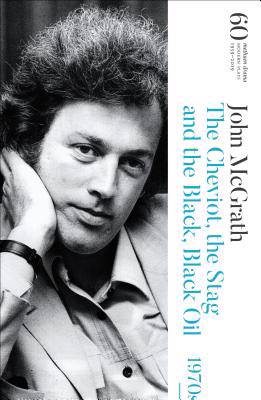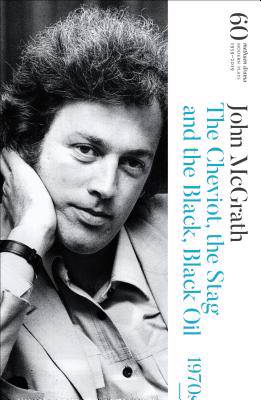
- Retrait gratuit dans votre magasin Club
- 7.000.000 titres dans notre catalogue
- Payer en toute sécurité
- Toujours un magasin près de chez vous
- Retrait gratuit dans votre magasin Club
- 7.000.0000 titres dans notre catalogue
- Payer en toute sécurité
- Toujours un magasin près de chez vous
25,95 €
+ 51 points
Format
Description
It's a story that has a beginning, a middle, but as yet, no end.
John McGrath's winding, furious, innovative play tracks the economic history and exploitation of the Scottish Highlands from the post-Rebellion suppression of the clans to the story of the Clearances: in the 19th century, aristocratic landowners discovered the profitability of sheep farming, and forced a mass emigration of rural Highlanders, burning their houses in order to make way for the Cheviot sheep. Described by the playwright as having a "ceilidh" format, The Cheviot, the Stag and the Black, Black Oil draws on historical research alongside Gaelic song and the Scots' love of variety and popular entertainment to tell this epic story. A totally distinctive cultural and theatrical phenomenon, the play championed several new approaches to theatre, raising its profile as a means of political intervention; proposing a collective and collaborative approach to creating theatre; offering a language of performance accessible to working-class people; producing theatre in non-purpose-built theatre spaces; breaking down the barrier between audience and performers through interaction; and taking theatre to people who otherwise would not access it. The play received its premiere in 1973 by the agit-prop theatre group 7:84. Methuen Drama's iconic Modern Plays series began in 1959 with the publication of Shelagh Delaney's A Taste of Honey and has grown over six decades to now include more than 1000 plays by some of the best writers from around the world. This new special edition hardback of The Cheviot, the Stag and the Black, Black Oil was published to celebrate 60 years of Methuen Drama's Modern Plays in 2019, chosen by a public vote and features a new foreword by Kate McGrath.Spécifications
Parties prenantes
- Auteur(s) :
- Editeur:
Contenu
- Nombre de pages :
- 104
- Langue:
- Anglais
- Collection :
Caractéristiques
- EAN:
- 9781350135079
- Date de parution :
- 04-11-19
- Format:
- Livre relié
- Format numérique:
- Genaaid
- Dimensions :
- 135 mm x 201 mm
- Poids :
- 181 g

Les avis
Nous publions uniquement les avis qui respectent les conditions requises. Consultez nos conditions pour les avis.






